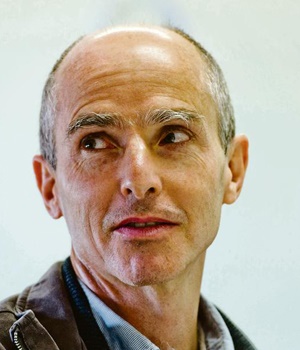
One of the Farlam commission of inquiry’s most serious accusations against national police commissioner General Riah Phiyega involves a speech she made the day after the Marikana massacre of August 2012.
Speaking to a parade of SA Police Service (SAPS) members, Phiyega made the now famous statement that “whatever happened represents the best of responsible policing”.
The commission says these words “set out what was from then on to be the official police line: that no blame at all [be] attached to the police for what happened”.
“This,” the commission says, “was calculated to effect a closing of the ranks.”
In effect, Phiyega was encouraging those who had participated in the operation to withhold information from the commission contradicting the official SAPS line.
Phiyega’s approach to issues concerning the conduct of the police on August 16 2012 has not changed since that day.
At the commission itself, there was no dispute about the fact that 34 people had been killed by the police. But during her first appearance before the commission in April 2013, she refused to acknowledge that this had happened, ostensibly on the basis that “I do not think I’m qualified to say so”.
At the time, she also indicated that it would be premature to suspend any of the SAPS members involved because the commission had not yet made any findings on what exactly happened at Marikana. On the basis of the SAPS claim that it had done nothing wrong at Marikana, she was allowed to get away with this.
But the commission has now found that there is prima facie evidence of widespread wrongdoing by SAPS members at Marikana. In relation to the 17 killings at Scene 1, the commission found that police officers at Scene 1 had reasonable grounds for believing they were being attacked. But the commission also finds, prima facie, that some of the SAPS members who fired at the strikers at Scene 1 exceeded the bounds of self-defence.
The SAPS should thus identify members who may reasonably be suspected of having exceeded the bounds of self-defence and suspend them pending the outcome of disciplinary action. These would include all of the police officers who continued shooting after there was no longer any sign of an attack, a point that was reached roughly four seconds after the shooting started.
In relation to the 17 killings at Scene 2, the report says that the SAPS “provided no details of what happened with regard to the deaths of most of the deceased”, and that where it does provide evidence pertaining to some of the deaths, “their versions do not bear scrutiny when weighed up against the objective evidence”.
If the SAPS has not been able to provide a credible justification for any of these killings, then they must be presumed, prima facie, to be unlawful.
According to the heads of argument of the SA Human Rights Commission, “40 strikers who were injured and/or arrested on August 16 allege that strikers were shot by police while surrendering or injured at Scene 2”.
As testified to by at least two senior police officers, SAPS members at Scene 2 continued shooting at the strikers when there was no evidence that any strikers were shooting at them.
In a recent press article, Phiyega said that the police members involved in the killings were receiving continuous psychological support and that they would be provided with legal support, “in line with SAPS regulations”. But the police’s obligations do not stop there.
Though the report, released more than six weeks ago, did not make detailed findings on which members were implicated, this does not exempt the SAPS from its obligations. The SAPS must systematically review the evidence of members who are implicated in wrongdoing.
All of the shooters at Scene 2, as well as those who are reasonably suspected of having acted unlawfully at Scene 1, must be suspended pending a finding that exonerates them from any wrongdoing. If no such finding is made, they must be dismissed from the SAPS. Dismissal does not require that they be found guilty in a court of law, but that, on a balance of probabilities, they acted unlawfully.
Phiyega’s continued emphasis on shielding the implicated SAPS members from facing the consequences of their actions raises questions about her motive for doing so.
The report provides good reasons to believe that Phiyega was central to the decision to launch the operation. Is this then the reason she is reluctant to face up to her obligation to take action against implicated SAPS members? After all, if the police operation was launched as a result of her instructions, how can she now turn against them?
In addition to the prima facie evidence of unlawful police behaviour at Marikana, there is also the issue of chronic dishonesty by the members of the SAPS in providing evidence to the commission.
Unfortunately, Phiyega herself is implicated in this dishonesty, this being the reason the commission has recommended that she face a board of inquiry into her fitness to hold office.
In Phiyega’s case, maintaining that the police have done nothing wrong is the elephant in the room. As a result, her presence in the SAPS represents an obstacle to addressing the legacy of Marikana. For this reason alone, she should go.
» Bruce is an independent researcher specialising in crime and policing




 Publications
Publications
 Partners
Partners








